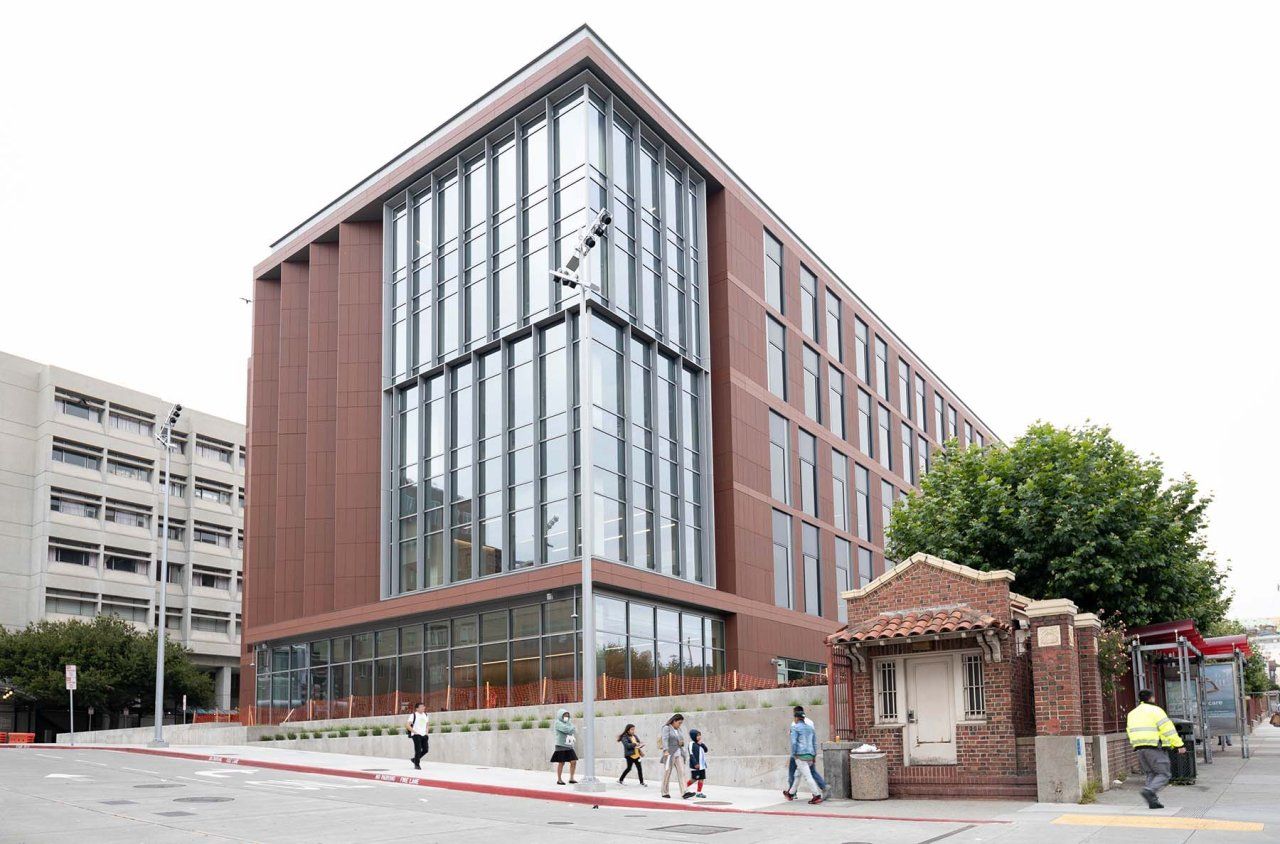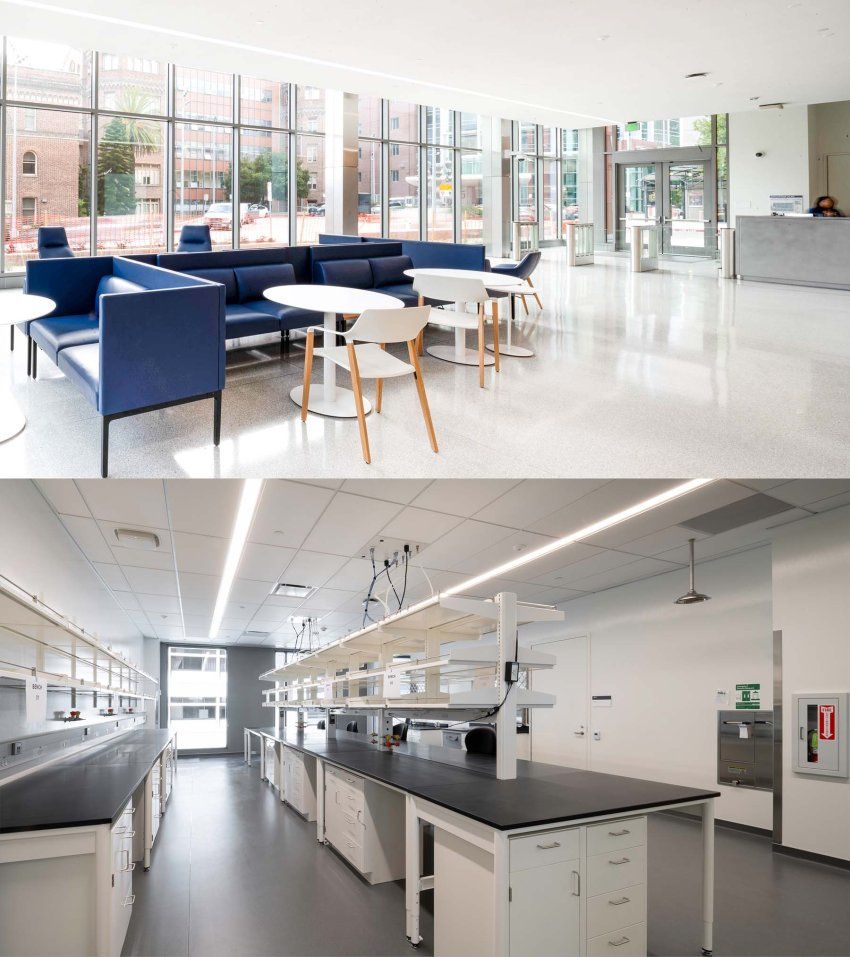Pride Hall Opens, a Highlight of UCSF’s Partnership with the City
Pride Hall, UC San Francisco’s new research and academic building at Zuckerberg San Francisco General Hospital and Trauma Center (ZSFG), celebrates the 150-year partnership of the two medical institutions and provides scientists and educators with state-of-the-art facilities for research and teaching.
UCSF Pride Hall, which celebrated its opening on Wednesday, Sept. 13, 2023, will house more than 800 UCSF employees, including about 200 physician-scientists and clinicians.
“Our faculty, trainees and staff at ZSFG are leading the way in many critical areas of public health, from infectious diseases to diabetes to trauma, and I am so proud of the investment UCSF has made,” said UCSF Chancellor Sam Hawgood, MBBS. “We look with excitement to their future work, as we mark the 150th anniversary of our partnership with the City.”

UCSF Pride Hall is the only UCSF-owned building on the ZSFG campus. With a 99-year ground lease from the City, UCSF is paying the entire $275 million cost of construction. Pride Hall is adjacent to the hospital and supports the research that enables ZSFG to maintain its designation as San Francisco’s sole level-one trauma center.
“UCSF and the City of San Francisco have been partners for 150 years in serving the most critical health needs of our community, from the 1906 earthquake to HIV/AIDS to COVID-19,” said San Francisco Mayor London Breed. “Both San Francisco and UCSF are known for being on the cutting edge of new ideas that change the world and people’s lives. Pride Hall will continue that legacy of bringing the best research to solve our most challenging health problems and pursue the next great idea in science.”
Space for science and collaboration
The building was designed specifically for research and education, and to maximize the functional use of space where all faculty members can collaborate. It includes 140,000 square feet of assignable space, with conference rooms, wet labs, dry labs, and surgical training and simulation facilities. Solar panels will produce about 10% of the building’s energy.
Pride Hall is a space where we will celebrate the rich scientific history of the ZSFG campus, and also our powerful partnership.
“I’m grateful to Chancellor Hawgood for his support of the community of researchers and scholars at ZSFG, and am confident that we will continue to make innovative, transformative contributions through our work in Pride Hall,” said Elena Fuentes-Afflick, MD, MPH, vice dean for the UCSF School of Medicine at ZSFG.
Lucy Zumwinkle Kornblith, MD, FACS, is an associate professor of surgery and laboratory medicine who will be conducting her trauma translational science research program at Pride Hall.
“Pride Hall is a space where we will celebrate the rich scientific history of the ZSFG campus, and also our powerful partnership,” said Kornblith, who practices as a trauma and acute care surgeon and intensivist at ZSFG and UCSF. “These two institutions share a vision to provide exceptional health care and drive scientific innovation.”
The building’s earthy, terracotta exterior was designed to blend with the hospital’s historic brick buildings. Alicia Murasaki, assistant vice chancellor of campus planning and campus architect, said it evokes the past but still includes all the elements – light, sustainability, technology – that are needed in today’s modern laboratory environments.
“While it has signals to indicate it’s connected to our past collaboration on this campus, it’s a building that’s also technically complex and innovative on its own,” she said. “Those two things are working together to celebrate our historic connection but also be forward-looking.”

UC Pride highlights
-
175,000 gross square feet, with 140,000 assignable square feet
-
18 conference rooms, 19 huddle/collaboration rooms, wet labs and dry labs, simulation and surgical training facilities, and the UCSF Community and Clinical Research Center.
-
LEED Gold certification (pending), photovoltaic solar panels to produce 248,000 kilowatts of power annually or 10% of the energy for the building, UCSF Green Lab standards.